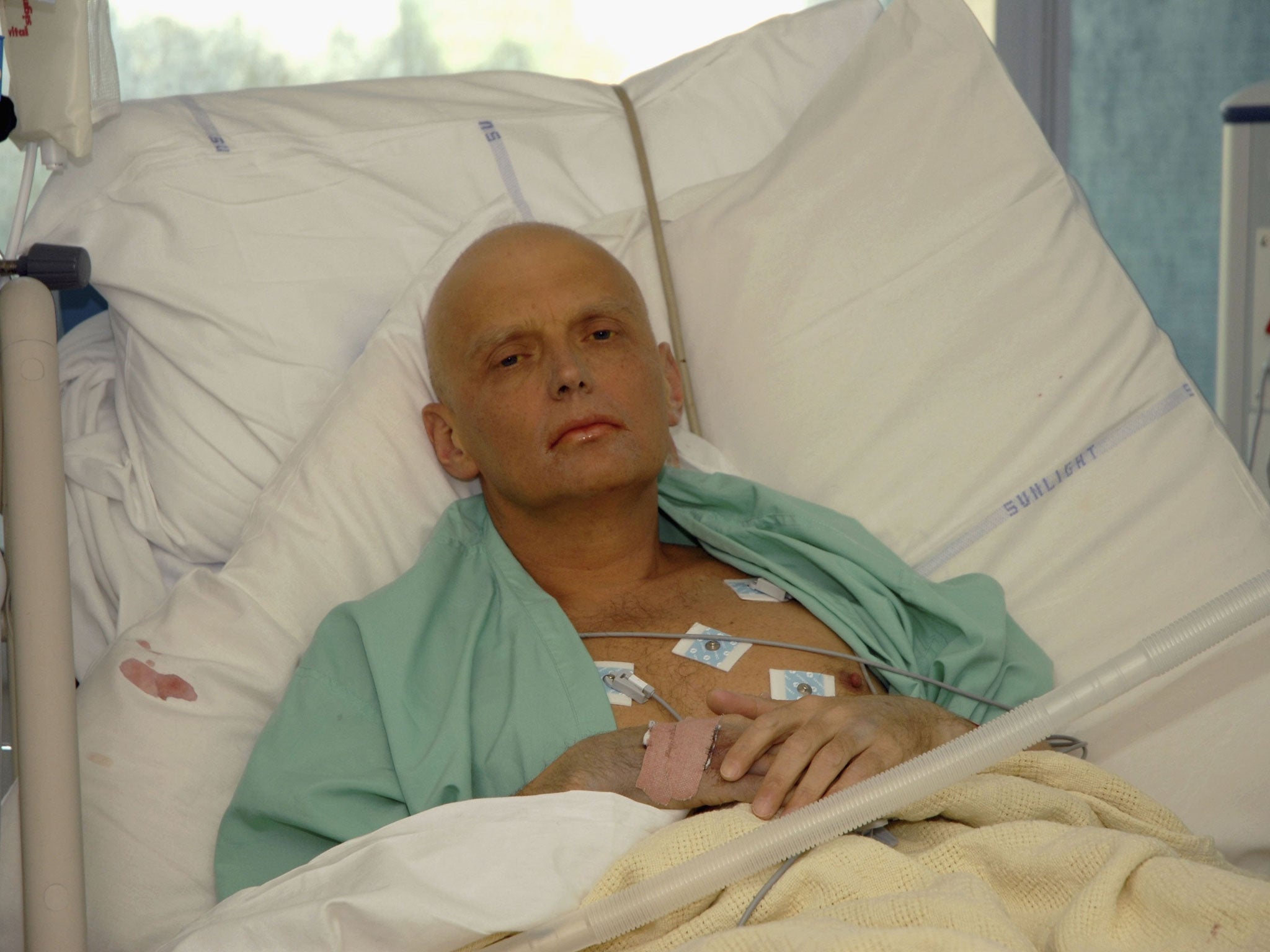Alexander Litvinenko: Unanswered questions over the murder of Russian spy
A public inquiry into the fatal poisoning of Litvinenko begins next week

After eight years of secrecy, intrigue and international political deadlock, a public inquiry into the fatal poisoning of Alexander Litvinenko will start next week that his widow believes will expose the extent of the Russian state’s culpability in his murder. Here are the key issues at stake:
Who carried out the murder of Alexander Litvinenko?
A Scotland Yard inquiry found that the former Russian spy consumed the fatal dose of polonium-210 during a meeting with two former KGB contacts at the Millennium Hotel, London, in November 2006. Six months after the murder, a warrant was issued for the arrest of one of them, Andrei Lugovoy, a former FSB agent. A second was later issued for Dmitri Kovtun. Both have denied involvement. Formal requests for extradition were made but despite “sustained diplomatic efforts” the authorities failed to bring them to Britain. The inquiry will examine the backgrounds of the two suspects and visits they made to London in the weeks before the killing. Even though they have declined to travel to Britain for the inquiry, their post November 2006 statements will be examined. A polygraph test taken by Mr Lugovy, conducted by a UK firm that carried out tests for the Jeremy Kyle TV show, will also be scrutinised. According to a Russian documentary involved in the testing process, Mr Lugovy passed the test when he denied responsibility for the murder.
What was the Russian state’s role in the killing?
This goes to the heart of the inquiry into Mr Litvinenko’s death – and why it has taken so long to get to this point. The inquiry’s chairman, Sir Robert Owen, has already stated that sensitive documents have established a “prima facie” case that the Russian state was responsible. Those papers – intelligence gathered by the secret service – can only now be considered after the Home Secretary decided last year to set up a public inquiry. An inquest would not have had the powers to examine those documents, and even now Sir Robert will consider some of that evidence behind closed doors. The inquiry will also examine claims that Mr Litvinenko was attempting to blackmail or sell sensitive information about powerful people. It will also examine the potential role of organised crime in his killing.
What are the political implications?
The killing, and the accusations of Russian complicity in it, sent relations between Britain and Russia into the deepest freeze since the end of the Cold War. The election of David Cameron’s government led to a short rapprochement before relations plunged again over the Ukraine crisis and the shooting down of a passenger jet over the country. The Government had rejected holding an inquiry in 2013, after admitting that relations with Russia were a factor, before it changed its mind last year. Vladimir Putin has denied Russian state involvement in the death of a man that many commentators considered to be too insignificant to threaten the Kremlin.
What will we not hear?
Sir Robert has already said that it is “inevitable” that at least some of his final report will remain secret, despite his intention to make clear what he concludes is the level of Russian state responsibility in the killing. Some of the witnesses will be hidden behind screens to protect their identities, and some evidence will be heard entirely in secret, though it will form part of the final report.
